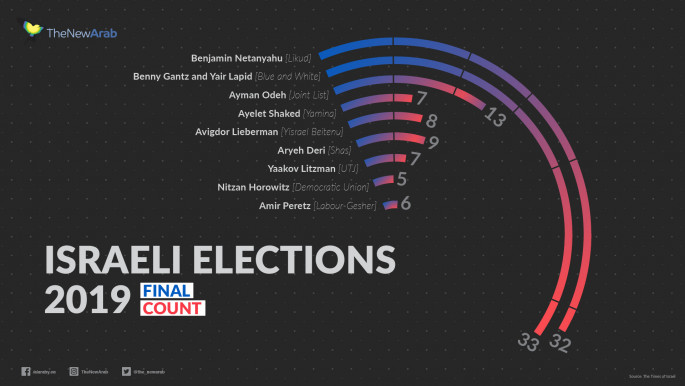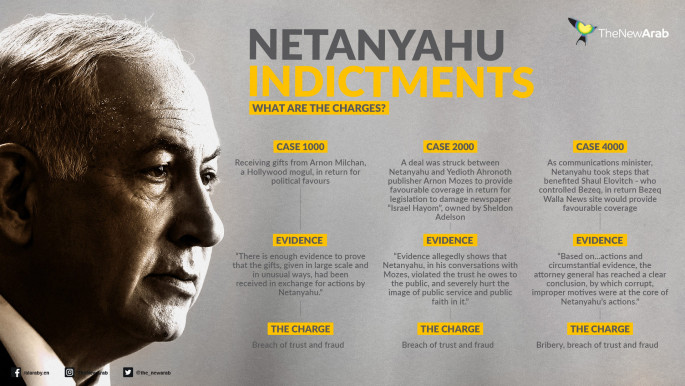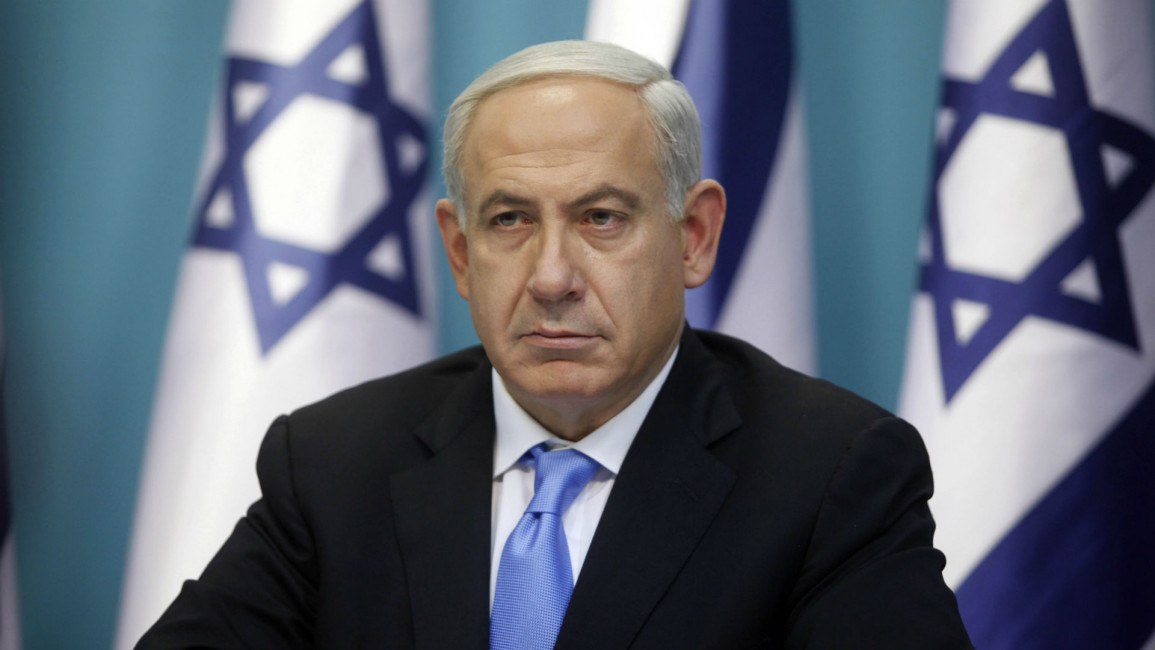Netanyahu says forming government with Palestinian alliance is 'slap in the face of Israeli soldiers'
Prime Minister Netanyahu, who is fighting to secure his premiership for a fifth term, said "there is one government that should not be formed - and this is a minority government that supports and depends on the Arab parties".
Israeli politics has suffered from a deadlock since a 17 September election in which both Netanyahu's Likud Party and Gantz's Blue and White failed to secure enough seats to easily form a coalition.
"I ask you Benny Gantz, do you want to form a government with these people? This is a direct slap in the face of IDF soldiers, the fighters you and I sent to battle," Netanyahu said at a conference speech Monday.
"He read from the Knesset podium the names of the terrorists who were killed, and said that the IDF is committing war crimes."
 |
| Read more: The kingmakers in Israeli politics: The ultra-orthodox and the far-right parties |
Palestinian members of Israel's Knesset announced they were backing ex-military chief Gantz as the country's next prime minister following the election.
The endorsement by the mainly Arab Joint List alliance, which is the Knesset's third largest party, was the first time since 1992 that majority Palestinian parties have endorsed a candidate for prime minister.
Joint List leader Ayman Odeh told Israeli President Reuven Rivlin the alliance's priority was to oust Prime Minister Netanyahu from power, and was therefore recommending Gantz.
Read more: A deadly gun violence epidemic has gripped Palestinian communities. Is Israeli police neglect to blame?
A union government with Netanyahu and Gantz's parties remains a possibility as both leaders seek to find a way through the political deadlock.
Both Likud and Gantz's Blue and White say they want a unity government, but disagree on how to achieve it.
Likud has been seeking to negotiate based on a compromise proposed by President Reuven Rivlin that takes into account the possibility Netanyahu will be indicted for corruption in the coming weeks.
It could see him remain prime minister for now, but step aside at some point later as he combats the charges.
 |
| Read more: Israeli state witness reveals new details in Netanyahu corruption case |
Gantz would take over as acting premier under such a scenario.
Blue and White says Gantz should be prime minister first under any rotation arrangement since his party won the most seats, finishing with 33 compared to Likud's 32.
The Joint List could play a key role with 13 seats in the Knesset, making them the third-largest force in the 120-seat legislature.
One party within the alliance, accounting for three seats, signalled it was against the decision to back Gantz.
The Joint List coalition is made up of four major Palestinian-Israeli parties. There are major ideological differences between them – the list includes the left-wing Hadash group and the Arab nationalist National Democratic Assembly (Balad).
Comment: Palestinian hopes don't lie in Israel's election, but in America 2020
If Odeh, 44, becomes opposition leader, he would obtain monthly briefings from the Mossad intelligence agency and meet visiting heads of state, among other extras.
Palestinian Israelis are descendants of Palestinians who remained on their land in 1948, when Jewish-Israeli militias expelled the vast majority of Palestinians from what would became Israel.
They make up some 20 percent of the country's population.
Agencies contributed to this report.
Follow us on Twitter and Instagram to stay connected



